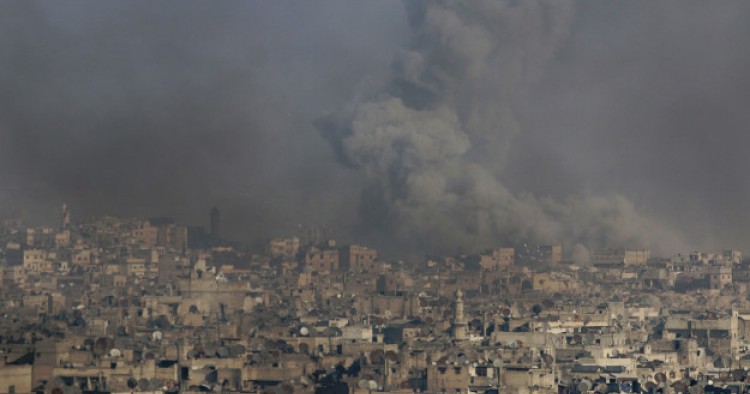Iran’s Foreign Ministry said on Monday that the Islamic Republic is prepared to deploy troops to Syria to monitor the ceasefire, Iranian media reported. Foreign Ministry Spokesman Bahram Ghassemi added that Iran, Russia and Turkey are holding talks to discuss the implementation of the ceasefire and de-escalation zones in Syria. “If the required grounds are provided, there would be a need to deploy forces who can monitor the ceasefire,” the Iranian spokesman said. “We are prepared to take this measure if the necessary agreement is reached,” he added.
Comment: Iran, Russia and Turkey reached an agreement earlier this month on the creation of four de-escalation zones in Syria. Iran’s Fars News Agency, an outlet affiliated with the Islamic Revolution Guards Corps (I.R.G.C.), said the three guarantor states will form a joint commission within five days to determine the boundaries of disarmament and security zones as well other technical matters related to the implementation of the agreement. The mapping of security regions was also planned to be finalized by May 22. The plan includes regions in five Syrian provinces: Homs, Idlib, Quneitra, Daraa and Rif Damashq.
In theory, the security zones should reduce violence and pave the way for dialogue between Damascus and moderate opposition groups to find a peaceful settlement to the six-year conflict. But a lack of consensus among Syrian opposition groups and the exclusion of other key external actors on the creation of Russian-sponsored security zones may hinder the plan’s successful implementation. As Russia, Iran and Turkey were signing the agreement in Astana, representatives of some Syrian opposition parties walked out of the summit in anger, protesting Iran’s participation in the deal. Therefore, an Iranian attempt to send its troops to monitor the de-escalation zones would only further inflame the war in Syria.
Another problem is that while the three sides agreed to continue fighting against the Islamic State and other “terrorist” groups, Turkey and Iran have a very different view of which groups fighting in Syria are terrorists. Tehran often paints all militant groups fighting against the Assad regime as terrorist, including ones supported by Ankara.
Furthermore, while Tehran and Moscow talk about “de-escalation” of violence at diplomatic forums, they both are supporting the Syrian Army’s ongoing offensive against all opposition militant groups, particularly in Holms and Idlib.
The Middle East Institute (MEI) is an independent, non-partisan, non-for-profit, educational organization. It does not engage in advocacy and its scholars’ opinions are their own. MEI welcomes financial donations, but retains sole editorial control over its work and its publications reflect only the authors’ views. For a listing of MEI donors, please click here.













